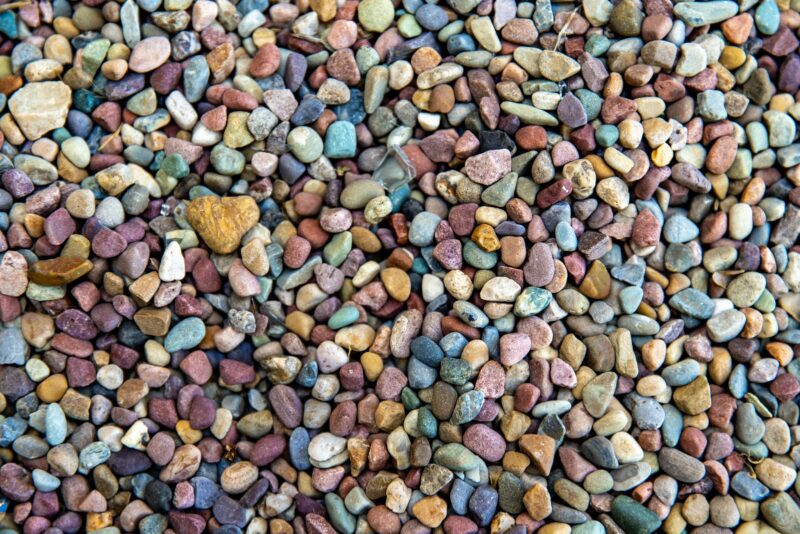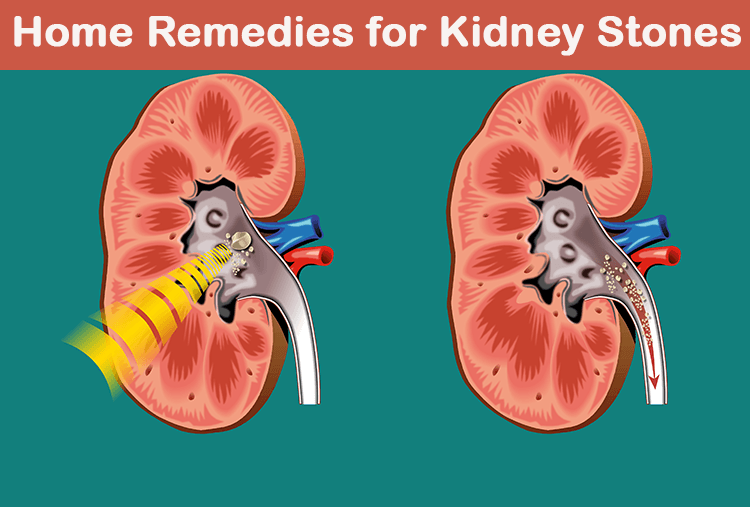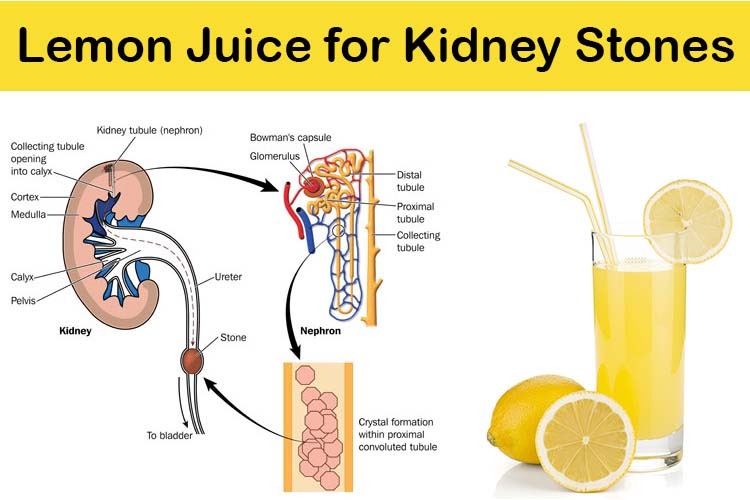According to the National Kidney Foundation, one in ten people will develop kidney stones at some point in their lives which makes it quite a common condition (1). Unfortunately, if a kidney stone is large enough to actually be noticed it’s quite painful to pass and it does take a while.
Our kidneys are absolutely essential. They help to filter all the waste products that our body produces and that we consume out of our bodies in the form of our urine. Sometimes, our urine can become too concentrated and kidney stones will form. Unless they are too big, these kidney stones slowly move through the urinary system to be excreted.
This process hurts. Pain along your urinary tract, dark urine, smelly urine, and the frequent need to urinate are all symptoms. Kidney stones can be caused by eating foods that contain oxalates like spinach and swiss chard, not drinking enough water, leading a sedentary life, over-exercising, genetics, and eating foods that are high in sugar and salt.
Luckily there are remedies to make passing kidney stones easier and reduce the pain naturally. One such remedy is essential oils for kidney stones.
How Do Essential Oils Help for Kidney Stones?
The only medical studies done specifically on the effect of an essential oil on kidney stones is this one for fennel, but there are many studies done on the anti-inflammatory effects of various essential oils and the improvement of blood circulation and pain reduction via the use of aromatherapy (2).
While essential oils as a standalone treatment may not be the best treatment for kidney stones for everyone depending on the severity of the kidney stone problem, they can be very helpful when used in conjunction with other internal remedies for kidney stones.
Using essential oils for kidney stone pain is one of the best ways to boost the effectiveness of other remedies and make passing a kidney stone easier. If you have smaller kidney stones, essential oils can be a very effective treatment with or without other remedies.
What are the Best Essential Oils for Kidney Stones
-
Fennel
-
Lemon
-
Lemongrass
-
Orange
-
Frankincense
-
Lavender
-
Chamomile
-
Rosemary
-
Peppermint
-
Eucalyptus
-
Helichrysum
Can You Take Essential Oils Internally?
While some essential oils, provided they are pure and of high quality can be consumed safely, this is best done under the recommendations of a certified naturopath or herbalist. This is because not all are safe for consumption as they are highly concentrated, the dose may also depend on your weight.
How to Dissolve Kidney Stones with Essential Oils?
Having noted the above, one of the most recommended ways to use essential oils to get rid of kidney stones is to drink 1 or 2 drops of pure, high-quality lemon essential in a glass of water once a day. But remember, that the safest option is to check with a naturopath or herbalist first.
Other essential oils work by improving blood circulation and some have diuretic effects (3). These effects can be achieved by inhalation through aromatherapy and topical application. Here are some ways you can do this:
1. Apply to Your Kidney Area
Dilute the essential oil in a carrier oil and apply it to your kidney area (they are situated behind your bottom ribs at your back) and even along your abdomen and sides. This is a great way to improve your blood circulation, reduce pain, and practice aromatherapy.
-
Dilute 2-10 drops of essential oil per tablespoon of carrier oil.
-
Put some oil in your hands and rub your hands together to warm the oil.
-
Then gently rub the oil in.
-
Your kidney area can be hard to reach on your own so you ask someone you trust to help you out.
Carrier oils you can use are:
-
Grape seed oil (won’t clog your pores or leave your skin greasy, good for oily and combination skin)
-
Coconut oil (can clog pores and can leave your skin greasy, so it’s not for oily skin)
-
Almond oil (can be a bit heavy for oily skin, very moisturizing)
-
Sesame oil (a light oil, won’t clog pores)
-
Olive oil (best for dry skin as it can be a bit heavy)
2. Diffuser
Adding a few drops of essential oil to a diffuser is one of the best ways to effectively use aromatherapy. You can set it for a few hours in the room that you’re in to reap the benefits. It also helps to add a little moisture to the air since they need water to work. So if you are struggling with dry sinuses or skin a diffuser/humidifier can make a big difference.
3. Essential Oil Burner
If you like candles, using an oil burner is another method. You can also find electric or battery operated essential oil burners. Depending on the burner, you can use just the essential oils by themselves, on coarse salt, or mix them with water. Either way, the heat gently sends the helpful components of the essential oils into the air where you breathe them in.
4. Use Your Hands
This is great for quick relaxation:
-
Put a drop or two of the essential oil and carrier oil mix in the palm of your hand.
-
Rub your hands together to warm it.
-
Then cup your hands over your nose and breathe in the aroma for a few minutes.
5. Add Essential Oils to Your Bath
The heat from the bathwater and the essential oil compounds evaporating so that you can breathe them in making a soothing and relaxing combination. You can either add 20-50 drops of essential oil to your bath or pour in some of the essential oil mixed with a carrier oil.
If you use the carrier oil combination, it has the added benefit of moisturizing your skin. Just be careful when you get out as the oils can make the bath slippery.
Note: If you are prone to urinary tract infections but enjoy nice smelling baths, using essential oils in the bath are a great alternative to bath salts and bubble baths.
6. Essential Oil Compress
If you don’t have a bath, you may find this helpful:
-
Add 5-15 drops of essential oil to a bowl of warm water and stir to mix it.
-
Soak a clean cloth in the solution.
-
Squeeze the cloth out and apply it to the painful area.
-
When the cloth starts cooling, soak it again to warm it up and then reapply it.
-
You can do this for up to 20 minutes.
Tips and Precautions
-
If you are pregnant, breastfeeding, have a medical condition or are on any medication speak to your doctor before using essential oils.
-
Always do a patch test before using essential oils.
-
If you have pets, first speak to your vet before using essential oils, especially for aromatherapy (4).
-
If you can’t use essential oils or don’t like them, you can try these remedies for kidney stones.
-
If you develop a fever, have severe pain that limits your mobility, bloody urine, nausea and vomiting, you should go to the doctor (5). Your stones may be too large (which can cause damage if not treated in time) or you may have developed an infection.
-
If your symptoms don’t go away after 6 weeks, go see your doctor (6).
-
Drink lots of water. Lemon water first thing every morning can really help. Unsweetened orange juice can also help and cranberry juice can help to prevent an infection, but the majority of your intake should be water. Green tea is also a great antibacterial option (7).
-
Limit or your intake or completely avoid meat, fish, eggs, chocolate, spinach, rhubarb, swiss chard, potatoes with the skin, okra, bran cereals (if you enjoy eating grains, soak and sprout them first), almonds, cashews, dairy, processed foods, junk food, and alcohol.
-
To prevent stones, stay well hydrated, limit foods that can cause kidney stones, exercise regularly, get enough good sleep, and if you are overweight try to get to a healthy weight.
We hope that you feel better soon! If you have any questions, please feel free to ask them in the comment section below. Which home remedies have you found most helpful for kidney stones?










